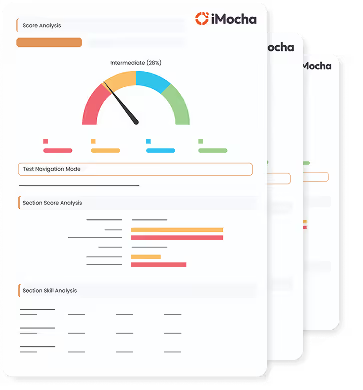


Choose easy, medium, or tricky questions from our skill libraries to assess candidates of different experience levels.
Choose easy, medium, or tricky questions from our skill libraries to assess candidates of different experience levels.

Choose easy, medium, or tricky questions from our skill libraries to assess candidates of different experience levels.

Choose easy, medium, or tricky questions from our skill libraries to assess candidates of different experience levels.
This a comprehensive PDF report, which you can instantly download and share with your hiring team or candidates for seamless collaboration.
Download Sample Report



The Systems Thinking assessment helps recruiters and L&D managers evaluate an individual’s ability to apply systems thinking principles, such as recognizing patterns, understanding interdependencies, and solving complex problems. This assessment helps organizations reduce hiring costs by up to 40% and design tailored learning programs to enhance employees' systems thinking skills.





%20(1).webp)
Systems Thinking is the ability to analyze complex systems as interconnected entities, considering how changes in one part affect the whole. It enables identifying patterns, addressing root causes, and implementing sustainable solutions to improve processes and outcomes. It evaluates the candidate’s ability to analyze and optimize complex systems by identifying interrelationships and holistic impacts.
Why Choose the iMocha’s Systems Thinking Test?
iMocha's Systems Thinking assessment provides a comprehensive evaluation of candidates' ability to think critically and holistically about complex systems. This test helps recruiters and L&D managers gain deeper insights into how individuals approach problem-solving, recognize patterns, and navigate interdependencies across various contexts.

The Systems Thinking Skills Assessment screens candidates for the following traits:







.webp)
.webp)
.webp)
.webp)


